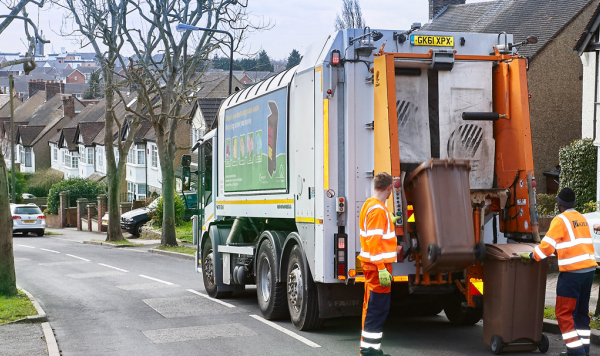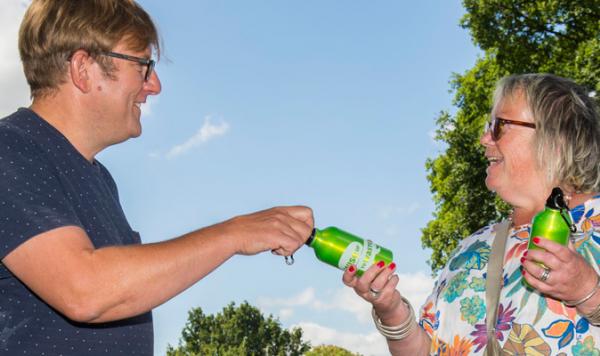Request
– to ask nwla the volumes of
a) food waste and
b) garden waste collected by Enfield council by month for the last available 36 months.
and setting out the disposal and treatment method (such as aerobic or anaerobic, in vessel etc.) and treatment location for each.
and to set out the best method available to nlwa for the disposal of vegware or similar pla/compostable drink cups.
Response
Our ref: EIR 2021-126
REF: Request for information about food and garden waste and the options for disposing of organic waste
Thank you for your request of 26 June 2021, received by us on 28 June, regarding the above. This request is being handled under the Environmental Information Regulations (EiR) 2004 and has been allocated the reference number 2021-126[1].
You asked if we could provide the following information:
– to ask nwla the volumes of
a) food waste and
b) garden waste collected by Enfield council by month for the last available 36 months.
and setting out the disposal and treatment method (such as aerobic or anaerobic, in vessel etc.) and treatment location for each.
and to set out the best method available to nlwa for the disposal of vegware or similar pla/compostable drink cups.
NLWA response: The seven boroughs in the North London Waste Authority (NLWA) area all send their residual (‘black bag’) waste to NLWA for disposal, but only six of the seven arrange for NLWA to handle and process their recycling. London Borough of Enfield makes its own arrangements for the management of food and garden waste. We therefore cannot provide the information you have requested regarding the volumes of food and garden waste collected by London Borough of Enfield in the last 36 months, nor can we provide details of the treatment methods and locations for this material, because we don’t have this information.
Accordingly, we are allowed to make an exception to providing the information you have requested under Regulation 12(4)(a) of the EiR, namely that the information is not held by NLWA. This letter therefore acts as a ‘refusal notice’ to provide this part of the information you have requested under the EiR.
I would advise contacting London Borough of Enfield directly with this part of your request; information is available on the council’s webpage here about how to do this: https://new.enfield.gov.uk/contact-us/ask-for-council-information/
However, you have also asked about the best method available to NLWA for the disposal of vegware or similar pla/compostable drink cups and this is information that we can provide.
We have received other similar requests about vegware and similar compostable cups and our most recent response (to request reference 2021-101) is available on our website here: https://www.nlwa.gov.uk/ourauthority/scheme-of-publications/request-information-about-bioplasticscompostable-plastics
In short, with the exception of easily recognisable compostable caddie liners and compostable carrier bags from the Co-Op which we accept as caddy liners, we do not accept compostable or bio-plastics in either the food/garden waste collection service or the dry recycling service. This is because the sorting equipment used at the composting, digestion and recycling facilities cannot identify and therefore distinguish and separate bio-plastic from other types of plastic.
So, whilst bio and compostable plastics, such as Vegware, can potentially be composted in commercial in-vessel composting (IVC facilities), it is not possible to separately identify this material as compostable when it is mixed in with other organic material – food or garden waste. This means it potentially causes the load to be rejected due to contamination. It is similarly problematic to identify in a dry recycling load. As a result, bio and compostable plastics must be placed in the residual waste bin. Until there are viable, cost-effective reprocessing options for bio-plastics, the position will remain that we cannot manage bio-plastics through any route other than disposal.
We have been advised that trials are underway elsewhere to look into the feasibility of collecting bioplastics for composting – we have asked to be updated about these.
Ultimately, the best option is to reduce the amount packaging used rather than substituting one type of packaging (plastic) for another (bio-degradable or compostable packaging).
I trust this response provides the information you are looking for about the options for processing bio-plastics, but if I can be of any further assistance, please do not hesitate to contact me if you have additional requests for information.
If you are dissatisfied with this response and wish to appeal, please reply to this email or submit a complaint via our website complaints page at: https://www.nlwa.gov.uk/enquiry-form
Your request should be submitted to us within 40 working days of receipt by you of this response.
If you are still not satisfied, you have a right to appeal to the Information Commissioner: https://ico.org.uk/global/contact-us/email/
Information Commissioner's Office
Wycliffe House
Water Lane
Wilmslow
Cheshire
SK9 5AF
0303 123 1113
Yours sincerely,
[1] Given the nature of our activities and the fact that environmental information is interpreted quite broadly we now generally answer information requests under the Environmental Information Regulations rather than the Freedom of Information Act. Further detail is available at: http://www.ico.gov.uk/for_organisations/environmental_information.aspx


